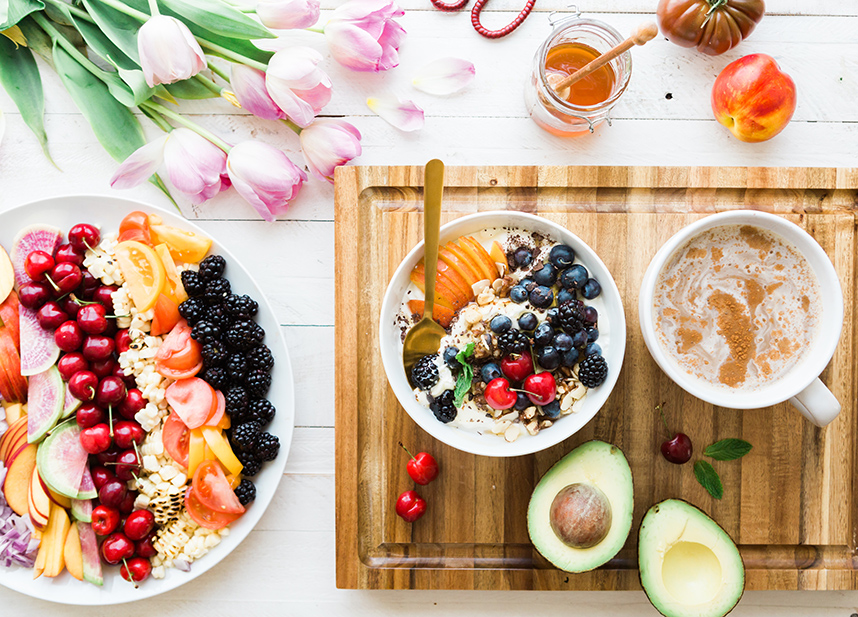Nourishing Your Mind: The Connection Between Nutrition and Emotional Well-Being Discover the intricate link between food choices and emotional well-being


By Neha Nagpal
Good nutrition is essential for our physical health, but it also plays a crucial role in our mental and emotional well-being. Studies have shown that nutrition directly affects our mood and emotional state. In this article, we will explore the relationship between food and mood, discussing how nutrition can impact mental health and sharing tips for incorporating mood-boosting foods into the diet.
The Science Behind Food and Mood
Our brain demands a continuous supply of energy, sourced from the foods we ingest. When we consume high-quality foods rich in essential vitamins, minerals, and antioxidants, we provide nourishment to our brain, shielding it from the detrimental effects of oxidative stress. In contrast, a diet abundant in refined sugars has been correlated with compromised brain function and the exacerbation of symptoms associated with mood disorders, such as depression.


Following a wholesome or Mediterranean dietary regimen, characterised by substantial intake of fruits, vegetables, nuts, and legumes, along with moderate portions of poultry, eggs, and dairy products, while only occasionally indulging in red meat, has been linked to a diminished risk of experiencing depression.
Mood and Carbohydrates
Carbohydrates are often associated with comfort food, and for good reason. Carbohydrates increase the production of serotonin, a neurotransmitter that regulates mood, appetite, and sleep. However, not all carbohydrates are created equal. Simple carbohydrates, such as those found in sugary snacks and processed foods, can cause a rapid spike in blood sugar levels, followed by a crash that can leave you feeling tired and irritable. Complex carbohydrates, such as those found in whole grains, fruits, and vegetables, provide a slower, more sustained release of energy that can help stabilise mood and energy levels.
Nurturing Your Emotional Well-Being Through Food Choices
Enhancing your mood and emotional well-being via dietary choices may seem like a challenge at first, but the potential benefits for your overall health are invaluable. Here are some practical strategies to help you embark on this journey:
● Colourful Array of Fruits and Vegetables: Aim to incorporate at least five servings of fruits and vegetables daily, varying the colours to ensure a wide range of essential vitamins and minerals.
● Embrace Wholesome Grains: Replace processed and refined grains with whole grains like brown rice, quinoa, and whole-wheat bread to provide lasting energy and mood stability.
● Lean on Lean Proteins: Prioritise lean protein sources such as poultry, fish, legumes, and tofu in your daily meals for sustained energy and mood support.
● The Power of Healthy Fats: Embrace healthy fats from sources like nuts, seeds, and avocados to nourish your brain and uplift your mood.
● Steer Clear of Processed Pitfalls: Gradually reduce your intake of processed foods, which often contain excessive sugar, salt, and unhealthy fats. Instead, opt for nutrient-rich whole foods to nurture your emotional well-being.
The relationship between food and mood is complex, but studies have shown that nutrition directly affects our mental and emotional well-being. Eating a healthy, well-balanced diet that includes a variety of fruits, vegetables, whole grains, lean protein, and healthy fats can help stabilise mood and energy levels and protect against depression and other mood disorders. By making small changes to your diet, you can improve your mental health and overall well-being.
More from our site
Recent Posts
Shaping Tomorrow’s Golf Champions With Leela Palace Bengaluru
The 3rd edition of The Leela Golf Tournament celebrated young talent and brought together skill, precision and camaraderie!
The 3rd edition of The Leela Golf Tournament celebrated young talent and brought together skill,…
The Duo Behind KAIA Goa & Gigi Bombay, Redefines Hospitality
In conversation with the founders of Pawan Shahri and Nikita Harisinghani, the duo behind Chrome Hospitality Asia
In conversation with the founders of Pawan Shahri and Nikita Harisinghani, the duo behind Chrome…
Precision, Durability, and Swiss Legacy
Victorinox launches the Swiss Army collection, featuring three distinct models that emphasise exceptional quality, resistance and versatility
Victorinox launches the Swiss Army collection, featuring three distinct models that emphasise exceptional quality, resistance…
A New Era of Luxury Interiors With Sussanne & Gauri Khan
Sussanne Khan & Gauri Khan unite to bring an awe-inspiring, six-storey sanctuary of luxury, art, and design in Hyderabad
Sussanne Khan & Gauri Khan unite to bring an awe-inspiring, six-storey sanctuary of luxury, art,…
Air India x Lufthansa: Fly To These International Destinations Now
Expanding their codeshare partnership, Air India and Lufthansa Group have added 100 new routes to their combined network
Expanding their codeshare partnership, Air India and Lufthansa Group have added 100 new routes to…
Luxury’s Most Recent & Vibrant Launches This Season
The luxury landscape is brimming with bold innovations, striking partnerships, and immersive experiences
The luxury landscape is brimming with bold innovations, striking partnerships, and immersive experiences

